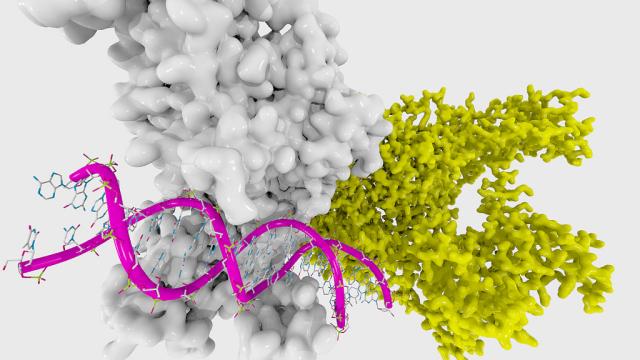Today, a study presented at the annual meeting of the American Society of Human Genetics tied male homosexuality to chemical markers on DNA that affect how genes are expressed.
Geneticist and lead author Tuck Ngun examined the genomes of brothers in 37 sets of identical twins where one twin was gay, and 10 pairs where both were gay, looking for differences in the methylation of their DNA molecules. DNA methylation is one way that the environment can affect the genome. It doesn’t change what a gene does, but can turn it on or off inside a cell. Ngun knew that the twins would share the same genes. He also expected them to share many of the same epigenetic markers, because they had similar uterine and childhood environments. Ngun and his colleagues sorted through the differences to find nine regions that were consistent with sexual orientation.
These epigenetic markers — some associated with genes that regulate the immune system and neuron transport, others on regions that aren’t part of any known gene — correctly predict sexual orientation about 70% of the time. But even if these results can be repeated, it’s still not clear why these sites might affect sexual orientation. Nature News has more details.
Image by Enzymlogic via Flickr [CC BY-SA 2.0]
